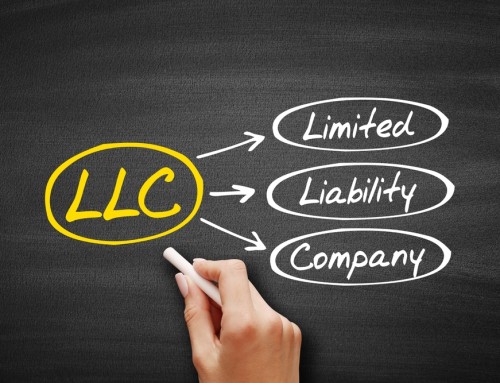Estate planning is about more than drafting a will or creating a trust; it’s about ensuring your legacy is protected and your loved ones are spared unnecessary legal and financial hurdles. One critical yet often overlooked aspect of estate planning is asset titling—the process of aligning asset ownership with your estate plan by transferring assets into your trust or naming beneficiaries. Proper asset titling can make the difference between a smooth transition of assets and a lengthy, costly probate process.
This guide explores why asset titling matters, the consequences of neglecting it, and actionable steps to secure your estate and protect your family.
Why Asset Titling Matters
Proper asset titling is a cornerstone of effective estate planning because it determines how your property and financial accounts are distributed upon your death or incapacity. Incorrectly titled assets can derail even the most well-thought-out estate plans, often leading to unintended outcomes.
Avoiding Probate
The primary goal of asset titling is to avoid probate—a court-supervised process to validate a will and distribute assets. While probate ensures legal compliance, it can also be time-consuming, expensive, and emotionally taxing for your family. By properly titling your assets, you ensure they transfer directly to your intended beneficiaries without court intervention.
What Happens When Assets Are Not Properly Titled?
When assets are not titled to align with your estate plan, they may become subject to probate or even pass to unintended recipients. This can create complications and unnecessary delays for your loved ones.
Real-Life Example
Consider a bank account held solely in your name. If you pass away without a named beneficiary or trust ownership, your heirs will need to go through probate to access the funds. This process can take months, delaying financial support your family may urgently need.
Real Estate: A Common Problem Area
Real estate is often the most valuable asset in an estate, and improper titling can have significant consequences. Fortunately, Arizona offers two key tools to help you avoid probate for real estate.
Transfer to a Trust
Transferring your property into a revocable living trust ensures that the trust becomes the legal owner. Upon your death, the property bypasses probate and is managed according to the trust’s terms.
Use a Beneficiary Deed
In Arizona, a beneficiary deed allows you to name who will inherit your property. This deed takes effect upon your death, transferring ownership directly to the beneficiary without probate.
Joint Tenancy vs. Tenancy in Common
How you title real estate impacts how it’s transferred after your death. Understanding the difference between joint tenancy and tenancy in common is critical to ensure your estate plan reflects your wishes.
- Joint Tenancy: Ownership automatically transfers to the surviving joint tenant upon death, avoiding probate.
- Tenancy in Common: Ownership shares pass to the deceased’s heirs or beneficiaries, requiring probate unless addressed through a trust or beneficiary deed.
Bank Accounts: Simple Steps to Avoid Probate
Many people mistakenly believe bank accounts automatically transfer to family members upon death. Without proper planning, however, these accounts may require probate.
Options for Avoiding Probate
- Title the Account in a Trust
Transferring ownership to your trust allows your successor trustee to access the funds if you become incapacitated or pass away. - Pay-on-Death (POD) or Transfer-on-Death (TOD) Forms
These forms allow you to designate a beneficiary who will automatically inherit the account. If you have a trust, naming the trust as the beneficiary simplifies estate administration.
What Happens If No Beneficiary Is Named?
If no beneficiary is named on a bank account, Arizona law provides limited options to bypass probate:
- Personal Property Affidavit: For accounts worth less than $75,000, beneficiaries can claim funds without probate using this affidavit.
- Probate Process: For larger accounts, probate becomes necessary unless the account is titled in a trust or a beneficiary is designated.
The Benefits of Proper Asset Titling
The advantages of proper asset titling extend beyond avoiding probate. It offers peace of mind, efficiency, and protection for your loved ones.
- Protects Your Family
Proper titling saves your heirs time, money, and emotional stress by avoiding court intervention. - Ensures Your Wishes Are Followed
Asset titling guarantees that your estate plan is executed as intended, preventing assets from going to unintended recipients. - Prevents Legal Delays
By sidestepping probate, you ensure your assets are transferred quickly and efficiently to your beneficiaries. - Preserves Privacy
Probate is a public process, which means your financial matters could become accessible to others. Proper titling keeps your affairs private.
Take Action: Steps to Title Assets Correctly
1. Review Your Estate Plan
Ensure your current estate plan accounts for all your assets and outlines how they should be titled.
2. Transfer Real Estate to a Trust or Use a Beneficiary Deed
Real estate is particularly susceptible to probate. A trust or beneficiary deed ensures it bypasses court proceedings.
3. Update Bank Account Titling
Use POD or TOD forms or transfer accounts into your trust for seamless administration.
4. Consult a Professional
The rules for asset titling vary depending on asset type and jurisdiction. Working with an experienced estate planning attorney ensures your plan is comprehensive and legally sound.
Why Choose KEYTLaw?
At KEYTLaw, we specialize in helping individuals and families in Scottsdale, Arizona, protect their assets and avoid probate. Our team takes a holistic approach to estate planning, ensuring all aspects of your plan work together seamlessly.
Whether you need assistance titling real estate, updating bank accounts, or understanding your options, we’re here to guide you every step of the way.
Protect Your Legacy Today
Estate planning is only effective if every detail is addressed. Proper asset titling is a critical step that ensures your wishes are honored and your loved ones are protected from unnecessary legal and financial burdens.






